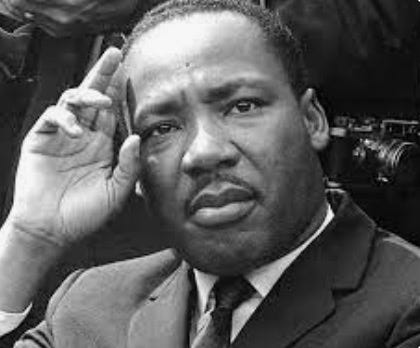"I have a dream that my four little children will one day live in a nation where they will not be judged by the color of their skin but by the content of their character.” - Martin Luther King, Jr.
Few readers will be reading this quote for the first time. Those on the anti-racist spectrum read it as aspirational, expressing King’s hope for an end to racism. It was, of course, “a dream,” not an observation. Unfortunately, post-racism racists truncate the message and weaponize the quote against affirmative action, critical race theory and diversity/equity work.
This latter interpretation is among the many reasons I experience MLK Day with great ambivalence. Co-opting “content of character” has become a conservative bludgeon, often accompanied by self-righteous claims of “colorblindness;” which is not a vision anomaly, but an example of moral dishonesty. If one claims to be blind to another’s race, they are willfully dismissing that person’s reality; not only denying their color, but denying their pain, their beauty, their rich history and their powerfully important voices. Colorblindness may be the most virulent iteration of racism.
But my ambivalence runs more deeply than objecting to white folks twisting King’s words to soothe their own consciences or serve their own political ends.
My two concerns both relate to what culturally responsive teaching calls the Heroes and Holidays (H&H) approach to race and racism. I know many readers are familiar with the criticism of this approach, but I’ll summarize briefly for those who are not.
H&H, particularly Black History Month or MLK Day activities, go further toward “otherizing” the non-dominant group. The corollary to Black History Month is 11 White History Months. Black History Month compresses the historical truths of Black women and men into a few school assemblies, almost invariably with a reading of or allusion to the “I Have a Dream”speech.
This compression and “otherIzing” provides tacit permission to neglect a wholesale reassessment of curriculum in schools to more accurately reflect our nation’s history.
It provides some of the fodder for many political figures who rail against Critical Race Theory (CRT) in schools. The too-familiar response to these attacks is to argue, quite accurately, that CRT is not taught in schools.
What too few progressive folks are willing to say is that CRT damn well should be taught in schools! This is not to suggest that every dimension of CRT is unimpeachable. It is Critical Race THEORY, after all. Like the powerful 1619 Project and curriculum, which has been credibly criticized by some historians, CRT (and the 1619 Project) provides compelling alternatives to conventional teaching, offering rich opportunity for debate and discussion. Instead we have MLK Day, Black History Month, a few posters of Rosa Parks and back to white, Euro-centric business as usual. Offering these tokens allows some politicians, educators and anti-racist racists to abdicate their responsibility to the truth.
My other concern is the ironically described “whitewashing” of King’s legacy. There is some general knowledge of King’s so-called “womanizing.” Even King’s most enthusiastic apologists acknowledge this history and then dismiss it as a personal weakness that should be subsumed within the grander story of his courageous life and inestimable role in the incomplete struggle for racial equity.
But, unfortunately, there is evidence that his “weakness” was not a mere ethical lapse or two, but a deeply troubling history of using women parishioners, cheating on his wife and offering advice and and encouragement as a fellow minister raped a woman. These reports are not mere gossip, but results of comprehensive research by one of King’s most respected biographers, David Barrow. These allegations are partially based on review of FBI records and, while primary sources have not yet been released, Barrow’s findings are sadly credible. The British magazine Standpoint published the story in 2019 after it was turned down by several American publications. A few others, including the Wall Street Journal, covered the story briefly, then allowed it to recede into the darker background of King’s full legacy.
I suspect others see this differently and please feel welcome to present a different perspective in the comments. I am not a serial moralizer, but there are acts or patterns of behavior that fall outside other instances of personal and private frailty that do not disqualify one from admiration or position.
I would differentiate, for example, between the apparently consensual sexual dalliances of JFK and the dismal behavior of Bill Clinton with an intern in the White House. JFK’s indiscretions diminish my admiration for him. Clinton’s “indiscretion” would be cause for termination of employment in many organizations.
As I prepare to dismount my high horse . . .
Too often the “indiscretions” of powerful or talented men are excused as though they are the natural companion to genius or achievement. Nonsense. We might well judge all such men on the “content of their characters.”
Now off my horse I’ll end by acknowledging the importance of Martin Luther King, Jr. in the fight for racial and economic justice. He was a great leader, a powerful orator, and deserves his place in history.
But I’d prefer that we skip the “Days,” “Months” and monuments. Coming to a full reckoning of the ugly reality of slavery and racism requires truth, not holidays.



So right!